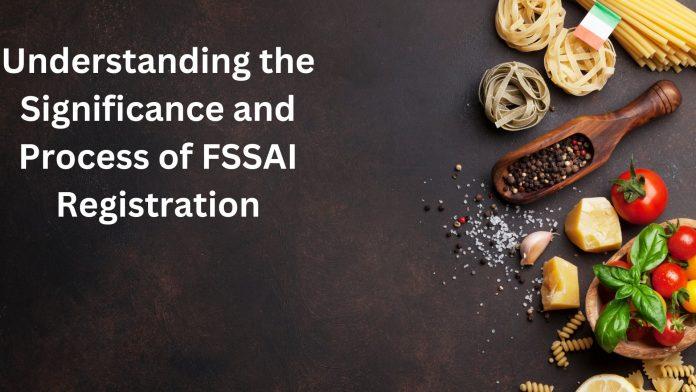Introduction:
The Food Safety and Standards Authority of India (FSSAI) plays a pivotal role in ensuring the safety and quality of food products in the country. FSSAI registration is a mandatory requirement for food business operators (FBOs) to ensure compliance with the established food safety standards. This article aims to delve into the significance of FSSAI registration its key components, and the step-by-step process for obtaining it.
Significance of FSSAI Registration:
Legal Compliance:
FSSAI registration is a legal obligation imposed on FBOs under the Food Safety and Standards Act, of 2006. It is essential for businesses engaged in the manufacture, processing, packaging, distribution, sale, import, or storage of food products. Compliance with FSSAI regulations helps avoid legal repercussions and penalties.
Consumer Confidence:
FSSAI registration instills confidence in consumers regarding the safety and quality of the food products they purchase. The FSSAI logo on food packages signifies that the product has undergone scrutiny and meets the prescribed standards, thereby assuring consumers about its safety for consumption.
Market Access:
FSSAI registration opens doors for FBOs to wider markets. Many retailers, both online and offline, require FSSAI-compliant products, making it imperative for businesses to register with FSSAI to access a broader consumer base and distribution channels.
Key Components of FSSAI Registration:
Basic FSSAI Registration (Form A):
Small-scale FBOs with an annual turnover of up to ₹12 lakhs are required to obtain basic FSSAI registration. This can be done by submitting Form A, which includes details such as the name and address of the business, the food product category, and the source of procurement.
State FSSAI License (Form B):
Medium-sized FBOs with an annual turnover exceeding ₹12 lakhs but below ₹20 crores, or those falling under specific categories, are required to obtain a state FSSAI license. Form B needs to be filled with comprehensive information about the business, food products, manufacturing units, and quality control measures.
Central FSSAI License (Form B):
FBOs with an annual turnover exceeding ₹20 crores, or those involved in import-export activities, need to obtain a central FSSAI license by submitting Form B. This involves more detailed information about the business operations, quality control procedures, and compliance with international standards.
Step-by-Step Process for FSSAI Registration:
Preparing Documents:
Gather necessary documents such as identity proof, address proof, a list of food products to be dealt with, and the business’s layout plan. Ensure that these documents are accurate and up-to-date.
Online Application:
Visit the official FSSAI website and select the appropriate type of registration or license based on the scale of your business. Fill in the online application form with accurate details, ensuring alignment with the supporting documents.
Payment of Fees:
Pay the requisite registration or license fees based on the category of FSSAI registration chosen. The fee structure varies for basic registration, state license, and central license. Payment can be made online through the designated payment gateway.
Application Verification:
Once the application is submitted, FSSAI officials will verify the details and documents provided. Any discrepancies or additional information required may prompt communication with the applicant.
Inspection by FSSAI Authorities:
FSSAI may inspect the business premises to ensure compliance with the prescribed standards. This step is crucial for businesses applying for state or central licenses.
Issuance of FSSAI Registration or License:
Upon successful verification and inspection, FSSAI will issue the registration certificate or license. The applicant can download it from the FSSAI portal and prominently display it on the business premises.
Also Check: Fssai License Renewal
Conclusion:
FSSAI registration is not merely a regulatory requirement but a crucial aspect of ensuring the safety and quality of food products in India. It not only establishes legal compliance but also builds consumer trust, opens up market opportunities, and contributes to overall public health. Businesses should approach the FSSAI registration process with diligence, adhering to the prescribed guidelines and standards to thrive in the dynamic and competitive food industry.
